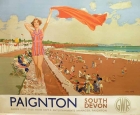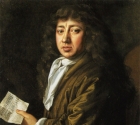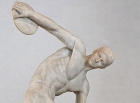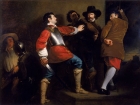Classroom Resources
These resources can take many forms but will be aimed at helping younger children explore historical concepts through their senses and developing their language and communication. For example, artefacts, visual images of various kinds, stories and people themselves all help younger children to explore ideas and work out problems for themselves and with support from informed adults.
Sort by:
Date (Newest first) | Title A-Z
Show:
All |
Articles |
Podcasts |
Multipage Articles
-

From Home to the Front: World War I
ArticleClick to view -

Helping pupils to view historical film critically
ArticleClick to view -

History, ICT and the digital age
ArticleClick to view -

History, artefacts and storytelling in the 2011 primary curriculum
ArticleClick to view -

How can old advertisements be used in the primary classroom?
ArticleClick to view -

How technology has changed our lives
ArticleClick to view -

Ideas for Assemblies: Refugee stories
ArticleClick to view -

In My View: Creativity & History
ArticleClick to view -

KS1: Teaching about significant individuals
ArticleClick to view -

Learning about the past through a study of houses and homes
ArticleClick to view -

Learning about the past through toys and games
ArticleClick to view -

Local People and Places in the Early Years
ArticleClick to view -

Local railway history: using visual resources
ArticleClick to view -

Planning for local history
ArticleClick to view -

Pride in place: What does historical geographical and social understanding look like?
ArticleClick to view -

Primary History and planning for teaching the Olympics - four curricular models
ArticleClick to view -

Primary history and British values
ArticleClick to view -

Pull-out Posters: Primary History 69
ArticleClick to view -

Pull-out Posters: Primary History 73
ArticleClick to view -

Resourcing primary history: How to avoid going for any old thing
ArticleClick to view

